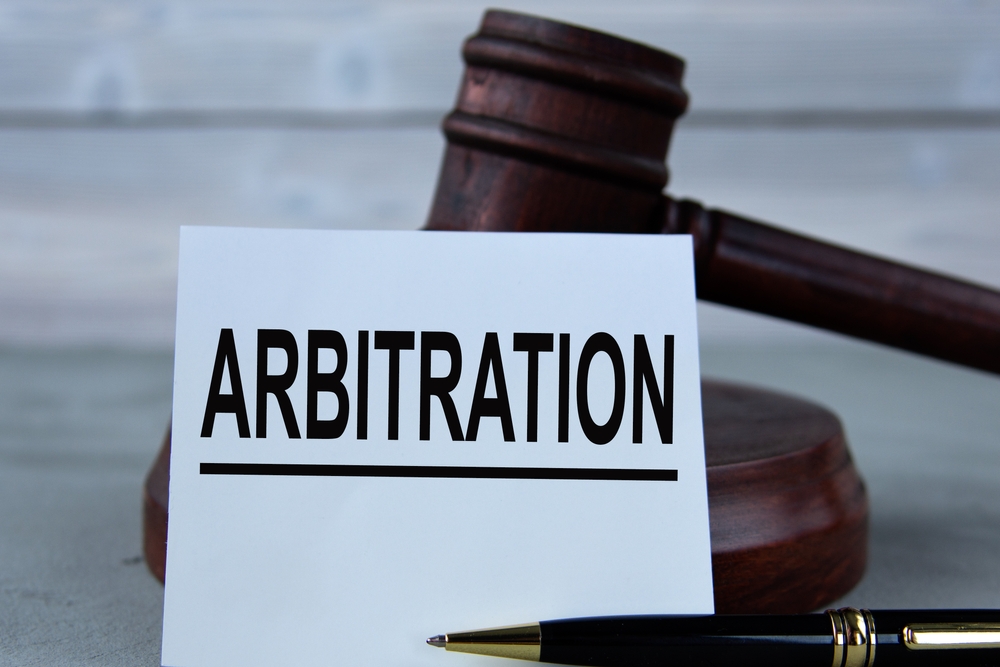Mark Kopec Now
Arbitration
Arbitration in Maryland and Medical Malpractice: A Deep Dive
Arbitration, a centuries-old dispute resolution method, has become increasingly prevalent in modern legal landscapes, including medical malpractice cases in Maryland. The Kopec Law Firm provides this article to explore the intricacies of arbitration in this context, examining its history, legal framework, and implications for patients and healthcare providers. This topic is examined for arbitration generally and also specifically in Marylan medical malpractice cases.
A Glimpse into the History of Arbitration
The roots of arbitration go back to ancient civilizations like Babylon and Greece. These early forms involved third-party intervention to resolve disputes amicably, often through negotiation and compromise. Over time, arbitration evolved, gaining legal recognition and becoming a formalized process in various legal systems.
Arbitration Clauses: The Cornerstone of the Process
Arbitration typically hinges on the presence of an arbitration clause within an agreement. These clauses stipulate that the parties will resolve any disputes through arbitration instead of traditional court proceedings. In the area of medical malpractice, these clauses can sometimes be found in agreements to enter nursing homes. At this time, most hospitals and doctors practice groups do not require arbitration clauses in agreements to provide patient care. However, as discussed below, Maryland does have the Health Claims Act which includes some requirements concerning arbitration.
Key Terms in Arbitration Clauses
- Scope: Defines the specific disputes covered by the clause.
- Confidentiality: May require that the arbitration proceedings remain confidential.
- Costs: Outlines the division of the costs of arbitration, such as arbitrator fees and administrative expenses.
- Discovery: Specifies the extent of pre-trial information exchange between parties.
- Appeals: Determines the grounds for appealing an arbitration award.

Voluntariness: A Crucial Consideration
The enforceability of an arbitration clause often rests on the principle of voluntariness. Courts generally uphold arbitration agreements when they are entered into freely and knowingly by both parties. Factors that may undermine voluntariness include:
- Unequal bargaining power: If the patient lacks meaningful bargaining power, the agreement may be deemed unconscionable.
- Inconspicuous clause: If the arbitration clause is hidden or in small print, the agreement to arbitrate may not be voluntary.
- Contrary to Public Policy: If the agreement causes the waiver of rights contrary to legal protections, the arbitration may be invalid.
- Lack of understanding: If the patient did not understand the terms of the agreement, it may not be enforceable.
- Coercion or duress: If the patient was pressured or forced to sign the agreement, it may be invalid.
Selecting Arbitrators: The Foundation of a Fair Process
The selection of impartial arbitrators is crucial for a fair and just arbitration process. Methods for selecting arbitrators vary, but common approaches include:
- Joint selection: Parties may jointly agree upon an arbitrator.
- American Arbitration Association (AAA) lists: Parties can choose from a pool of qualified arbitrators maintained by the AAA.
- Court appointment: In some cases, the court may appoint an arbitrator if the parties cannot agree.
Arbitration Procedures: A Departure from Traditional Litigation in Medical Malpractice
Arbitration proceedings differ significantly from traditional court trials:
- Less formal: Arbitration hearings are generally less formal than court trials, with fewer procedural rules and evidentiary restrictions.
- Simplified discovery: The discovery process in arbitration is often more streamlined and less extensive than in court.
- Focus on efficiency: Arbitrators prioritize efficiency and aim to resolve disputes more quickly than traditional litigation.
- Confidentiality: Arbitration proceedings are generally confidential, which can be beneficial for both parties.
These characteristics can apply to both medical malpractice and other types of arbitrations.
Appeals: Limited Scope and Considerations
Appeals from arbitration awards are generally limited in scope. Courts are typically reluctant to overturn arbitration awards unless:
- The arbitrator exceeded their authority: The arbitrator decided issues outside the scope of the arbitration agreement.
- There was fraud or misconduct: The arbitrator engaged in unethical or improper conduct.
- The award violates public policy: The award contravenes established legal principles or is against the public interest.
Enforcing an Arbitration Agreement
To enforce an arbitration agreement, a party can typically file a motion to compel arbitration with the court. The court will then review the agreement and determine whether it is valid and enforceable. If the court finds the agreement to be valid, it will order the parties to proceed with arbitration.
Arbitration in Medical Malpractice under the Maryland Health Claims Arbitration Act
The Maryland Health Claims Arbitration Act governs the arbitration of medical malpractice claims in the state. Key aspects of this legislation include:
- Mandatory arbitration: The Act establishes a mandatory pre-suit arbitration process for most medical malpractice claims. This requires initial filing in the Health Care Alternative Dispute Resolution Office (HCADRO)
- Three-member panels: Arbitration panels typically consist of three members: an attorney, a healthcare provider, and a public member.
- Non-binding decisions: Arbitration decisions under the Act are generally non-binding, meaning either party can choose to proceed to court after arbitration.
- Waiver of arbitration: Parties can waive the mandatory arbitration process and transfer directly to court.
Conclusion on Arbitration and Medical Malpractice
Arbitration has generally emerged as a significant mechanism for resolving disputes in a variety oof legal areas. However, in medical malpractice in Maryland, arbitration is rare. Almost all parties waive out of arbitration in HCADRO. Remaining arbitrations usually involve clauses in nursing home contracts.
It is crucial for patients facing arbitration clauses to understand the implications of arbitration clauses and to exercise their rights carefully. By understanding the legal framework and procedures surrounding arbitration, patients can make informed decisions about their healthcare and navigate the legal process effectively.
If you have a potential medical malpractice case, then visit our free consultation page or video. Then contact the Kopec Law Firm at 800-604-0704 to speak directly with Attorney Mark Kopec. He is a top-rated Baltimore medical malpractice lawyer. The Kopec Law Firm is in Baltimore and pursues cases throughout Maryland and Washington, D.C.





